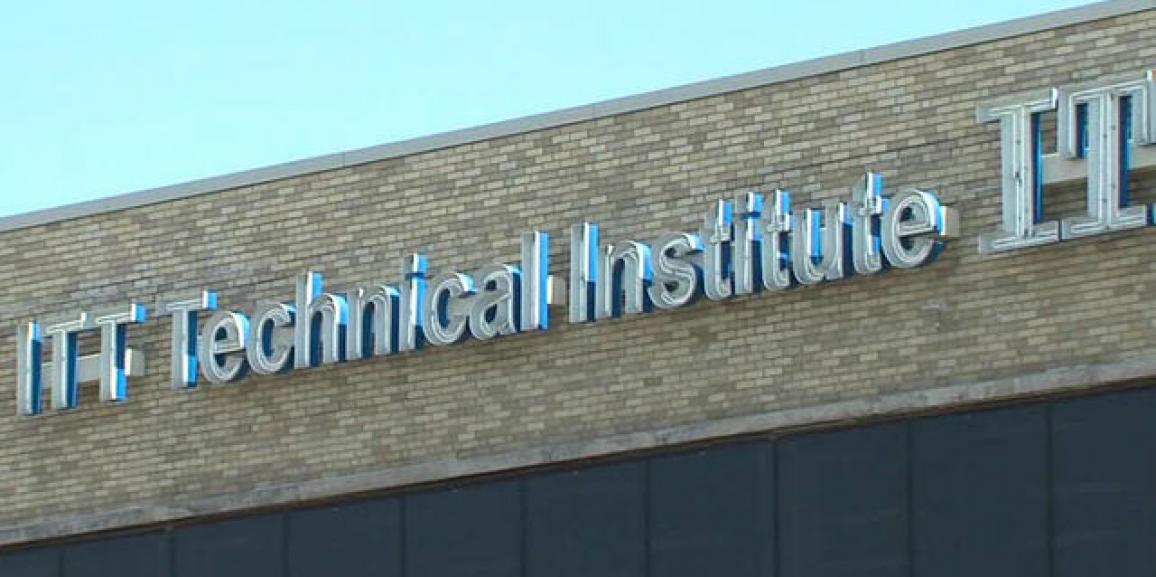A summary of the list of recommendations on the implementation of the OBBBA in Colorado regarding public benefits systems and work requirements.
Recent articles
CCLP testifies in support of Colorado’s AI Sunshine Act
Charles Brennan provided testimony in support of Senate Bill 25B-004, Increase Transparency for Algorithmic Systems, during the 2025 Special Session. CCLP is in support of SB25B-004.
Coloradans launch 2026 ballot push for graduated state income tax
New ballot measure proposals would cut taxes for 98 percent of Coloradans, raise revenue to address budget crisis.
CCLP statement on the executive order and Colorado’s endless budget catastrophe
Coloradans deserve better than the artificial budget crisis that led to today's crippling cuts by Governor Jared Polis.
Private occupational schools raise public concerns

Last month, the U.S Department of Education issued what would ultimately be a death sentence for ITT, a large for-profit technical school. The department forbade ITT from enrolling new students who depend on federal financial aid — the main source of ITT’s revenue. This restriction was issued in reponse to concerns about ITT’s recruitment and financial practices. Furthermore, the department ordered ITT to increase its reserves from $94.4 million to $247.3 million.
Shortly after receiving the order, ITT announced they would close their doors for good — leaving the records and future educational options of tens of thousands of unexpectedly displaced students up in the air. The closure also meant that more than 8,000 ITT employees were suddenly without jobs.
Concerns about ITT’s recruitment and financial practices were not new. Recently, roughly a dozen state attorney generals have been investigating allegations that ITT misled students about job prospects and accepted unqualified students to its technical programs. Unfortunately, these allegations are not new to the for-profit school sector as a whole. In 2015, another big player in the sector, Corinthian Colleges, shut down after the U.S Department of Education issued a $30 million fine against the company for publicizing falsified data of job placement rates.
While the Department of Education’s order against ITT is a huge step in holding for-profit schools accountable, what consequences do these actions have on (often low-income) students who were trying to better their lives? In short, the students have two options: they can apply for the discharge of their federal student loans or they can transfer their credits to another comparable institution and finish their education.
Loan forgiveness is no easy path but seems to be the most common choice. After Corinthian Colleges shut down and left thousands of students displaced, the Department of Edudcation made a concerted effort to help students figure out what to do. In response to these issues, the department streamlined the process of forgiving federal loans. Unfortunately, these students don’t always just hold federal loans, but also private loans with higher interest rates. In fact, for-profit schools enroll the highest proportion of students taking out private loans. So, even if the federal loans are forgiven, students may be left with thousands of dollars in debt and no degree. Also, if students apply for federal loan forgiveness, they cannot transfer their credits to continue their education.
If students do not apply for loan forgiveness, they can attempt to transfer their credits to another school to continue their education, but evidence suggests this approach presents its own set of problems. There haven’t been many statistical studies of the transferring of credits from for-profit schools, but one study found a significant difference in the loss of credits students faced when trying to transfer their for-profit credits.
Historically, ITT’s credits do not tranfer easily. Indeed, prior to the closure, ITT cautioned students that it was “unlikely that any credits earned at the school would be transferable to or accepted by any institution other than an ITT Technical Institute.” Since ITT closed, a number of schools have invited ITT students to consider continuing their education with them.
As evidenced from recent events, government oversight of private occupational schools is not always foolproof, but some reinforcements may be in order in Colorado.
In 2015, CCLP sought to amend the reauthorization act of the Division of Private Occupational Schools (Senate Bill 171) to strengthen their consumer information and protection role. Although unsuccessful, CCLP later met with the Division of Private Occupational Schools seeking to strengthen the disclosure of consumer information such as graduation and job placement rates. CCLP and the Colorado Skills2Compete Coalition are exploring possible remedies to enhance transparency of these institutions for the 2017 legislative session.
Below are examples of what other states have done to regulate for-profit schools:
- Virginia – Defrauded students in Virginia have access to a student-tuition recovery fund.
- Illinois – Prohibits commercial misrepresentation and fraudulent activity from private, occupational schools.
- California – Prior to enrollment, schools must provide potential students with a “school performance fact sheet, which includes completion rates, job-placement rates, license examination passage, and salary/wage information.
- New York – As part of a “Know-Before-You-Enroll” initiative, the state oversees an online resource to help students research facts about different institutions.
- Washington – Enrollment agreements for private occupational schools are not binding for at least five days.
There is plenty of room for improvement in how the government deals with private occupational schools. While efforts have been made to improve reporting standards for these institutions, ITT’s failure demonstrates that more must be done to protect vulnerable students from long-term financial consequences that don’t necessarily result in better employment prospects.
– By Samantha Kopf
